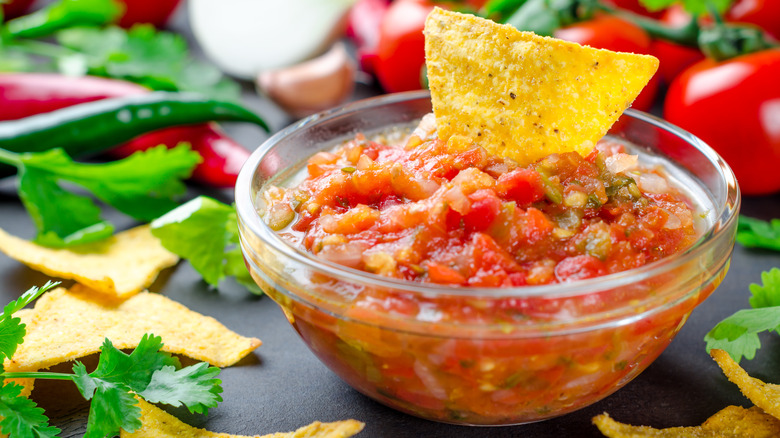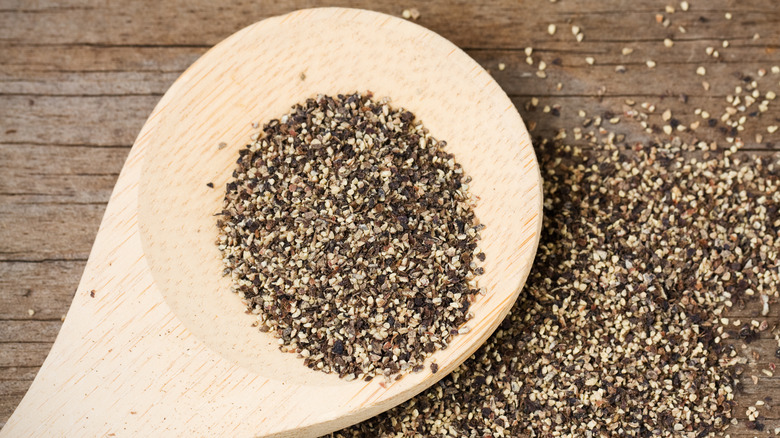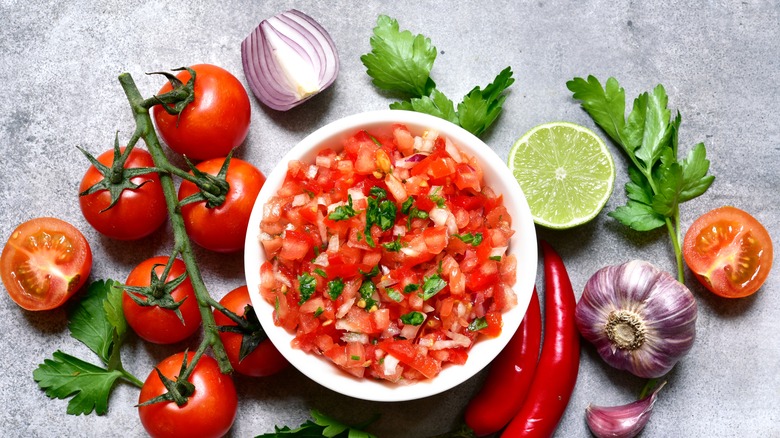When Making Homemade Salsa, Skip This Classic Seasoning
When you think of the taste of a delicious, restaurant-quality salsa, a blend of rich, acidic tomatoes and a fiery kick of spice from peppers comes to mind. Salsa, translated from Spanish, simply means "sauce," and the array of different varieties is vast, making the possibilities endless when creating your own at home. However, whether you're keeping it classic with a pico de gallo or adding in fruit like pineapple to make a sweet salsa, there's one classic seasoning you don't need to reach for: ground pepper.
Ground black pepper, while commonly used in the kitchen alongside salt to build layers of flavor in cooking, is best skipped when it comes to making homemade salsa. As long as you are using fresh, quality ingredients, the salsa can speak for itself, with a little salt to help the natural flavors really sing. While black pepper can help bring a mild heat to many foods, when it comes to perfect summer salsa recipes, the focus should be on zingy, acidic flavors and spices.
Why you shouldn't be using black pepper in salsa
While your salsa won't suffer if you use ground pepper, the condiment can simply get lost in the sauce. Black pepper just isn't powerful enough to break through all the brightness of other traditional salsa ingredients like tomatoes, onions, or fresh, punchy chilis. And if you like your salsa to bring the heat, then rely on peppers like jalapeños or serranos for a little kick instead. A spicy serrano pico de gallo recipe, for example, eliminates the need for extra seasonings because of the power of the pepper itself. You don't want to muddle it with ground pepper that, in the end, won't add much to the salsa.
Pre-ground black pepper is less pungent than freshly ground pepper, making the flavor far more prone to getting buried in the mix. So, if you taste-test your homemade salsa and find it does need a bit more heat, add more of your choice of diced chili instead. And if your heart still truly wants some black pepper in there, try to use freshly ground for the most potent flavor.
Seasonings to focus on in your homemade salsa
While black pepper is unnecessary, don't think that means your homemade salsa doesn't need to be seasoned at all. As previously mentioned, salt is essential for elevating the fresh ingredients in a salsa. But to add to the zesty goodness, make sure to always include a squeeze of fresh lime juice and a little cilantro. This can vary based on the salsa recipe you're making, but many salsas include some kind of citrus and fresh herb like cilantro to liven up the party. And, of course, finely diced onion and garlic make for a great foundation of flavor.
Even though lime juice is a bit sour, just the right amount in your homemade salsa can bring the perfect zing that black pepper could only dream of achieving. It's also the perfect ingredient to elevate a jar of store-bought salsa. A more fiery-roasted blended salsa could do well with a touch of ground chili powder or cumin, but for the most part, you can do without powdered spices. Instead, choose a fresh chili that adheres to your spice tolerance and focus on fresh, bright herbs and seasonings. The pepper shaker can remain in the spice cabinet for your next homemade salsa.


